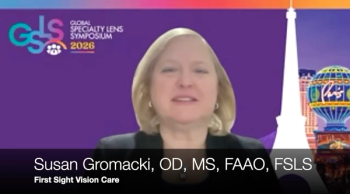
ODs may earn dual bonuses under new Medicare PQRS-EHR pilot project
Medicare has launched the Physician Quality Reporting System-Electronic Health Records Incentive project to make it easier for healthcare practitioners to qualify for payment bonuses under both incentive programs at the same time.
Healthcare practitioners who qualified for bonuses through the Medicare Electronic Health Records (EHR) Incentive program during 2012 may also qualify for 2012 payment bonuses under the Physician Quality Reporting System (PQRS), if they enroll in the new Medicare PQRS-EHR Incentive Pilot Program by Feb. 28, 2013, according to the U.S. Centers for Medicare & Medicaid Services (CMS).
Medicare has launched the new PQRS-EHR Incentive project to make it easier for healthcare practitioners to qualify for payment bonuses under both incentive programs at the same time, according to the CMS.
It represents the first step in a plan to eventually merge the quality measure reporting requirements for the EHR and PQRS incentive programs.
Health care practitioners can earn Medicare payment bonuses through the PQRS by reporting on three of the program’s designated quality of care measures for specified ages of applicable patients.
Practitioners can earn incentive payments under the Medicare EHR program by meeting the program’s “meaningful use” standards, including reporting on a total of six quality measures.
Under the PQRS-EHR pilot project, health care practitioners who use their EHRs to meet quality reporting requirements for one of the incentive programs are essentially considered to have met the quality reporting requirement for the other.
That means, for example, health care practitioners who met the requirements for EHR incentives last year can also pick up an additional bonus payment under the 2012 PQRS program, if they act quickly, the AOA Washington office noted.
“It’s not too late” to earn bonuses for 2012 under the joint PQRS-EHR incentive project, CMS officials emphasized during a recent Medicare Provider Conference Call.
The PQRS offers health care practitioners payment bonuses equaling 0.5% of their approved Medicare payments for the year.
The EHR program offers practitioners thousands of dollars in incentives, with maximums based on when they entered the program, years of participation, and total Medicare allowed charges for the year.
To participate in the pilot project, practitioners must have EHR systems certified for use in federal EHR incentive programs, have Individuals Authorized Access to CMS Computer Services accounts, be in at least their second year in the Medicare EHR Incentive Program, and meet other qualifications, the CMS noted.
They must also meet all EHR meaningful use requirements, not just quality reporting criteria, the agency emphasized.
The CMS outlined the PQRS-EHR pilot program during a Dec. 18, 2012, Medicare provider conference call.
Details of the program can be found in an audio recording and PowerPoint presentation from the conference call, which can be accessed online at http://tinyurl.com/PQRS-EHR.
Newsletter
Want more insights like this? Subscribe to Optometry Times and get clinical pearls and practice tips delivered straight to your inbox.















































